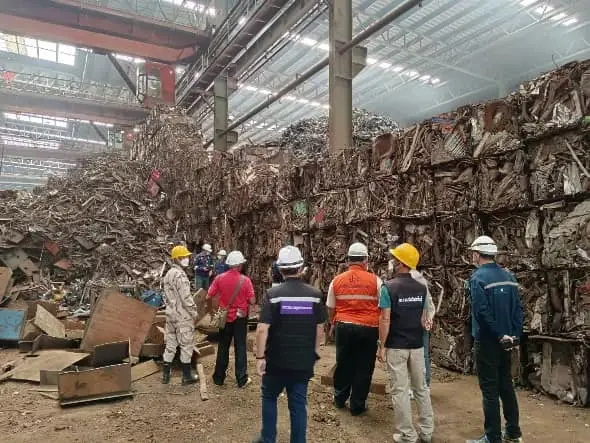Officials in Thailand say radioactive caesium-137 is contained, scholars disagree

The radioactive caesium-137 cylinder that went missing from a power plant in Prachin Buri province, central Thailand, was found to have been melted and turned into red soot with other scrap metal at a smelting factory around 10 kilometres away from the plant, sparking major health concerns for people in the area.
Whether the caesium-137 will cause health problems like cancer depends on whether any radioactive soot escaped into the atmosphere during the smelting process or afterwards. Officials and scholars seem to disagree on the likelihood of this.
The smelted caesium-137 was transported to a factory in Rayong province in eastern Thailand on March 2. Yesterday, officials from the Office of Atoms for Peace travelled to Rayong and found 16 bags containing 12.4 tonnes of red soot found to be contaminated with radioactive caesium-137. Officials said that caesium-137 in the atmosphere did not exceed the standard level in a five-kilometre radius of the factory in Rayong.
A video shows radiation being detected around 10 metres away from the bags.
The Governor of Rayong province Triphop Wongtrairat reported that the soot was in fact received from the smelting factory in Prachin Buri as suspected. Governor Triphop said the factory in Rayong has been ordered to close temporarily and the metal soot will be sent back to its origin in Prachin Buri province within three days.
Meanwhile, in Prachin Buri province, governor Narong Nakornjinda reported yesterday that the factory in Si Maha Phot district where the missing cylinder was smelted at 1200 degrees Celsius would be closed off.
Officials say that caesium-137 didn’t leak into the atmosphere because it was melted into soot in a “closed melting system,” reports ThaiPBS.
However, Dr Sonthi Kochawat – an environmental health expert – wrote a concerning post on Facebook called “Realities to be accepted to manage the smelted caesium-137,”
Dr Sonthi explained that the scrap metal furnace that turned the caesium-137 into soot works by heating metals at up to 1200 degrees Celsius. He says that 90% of the metal is turned to soot, whereas 10% floats up to the chimney and is released into the atmosphere.
The caesium-137 soot that escaped the chimney into the atmosphere would contaminate soil, surface water and groundwater in the area, said Dr Sonthi.
He says that the people in the area could be affected by the caesium-137 by breathing contaminated air, drinking contaminated water or eating contaminated meat or fish.
The caesium-137 emits beta and gamma radiation that mutates cells, which will stimulate chromosomes to change shape, which will turn into cancer in five to 10 years, said Dr Sonthi.
Yesterday, 70 factory workers and residents in the immediate area underwent blood tests but none of them had been affected by the caesium-137 – yet.
By accepting the truth, damage control can be implemented. The scholar says that the health of people in the area should be monitored for five years…
“Current health effects may not be seen, but long-term effects can occur if this substance is ingested – through breathing or eating. Therefore, the government must monitor the health of employees and locals and test aquatic animals. Fruits and vegetables planted near the factory for radiation for one to two years to ensure that caesium-137 hasn’t entered the food chain.
“At the same time, the truth about the effects of radiation on health must be told to the public. Everyone in a five-kilometre radius of the factory should be monitored for at least five years.”
It remains unclear who is responsible for the caesium-137 going missing from the power plant. No one has been criminally charged yet.
Latest Thailand News
Follow The Thaiger on Google News:


























